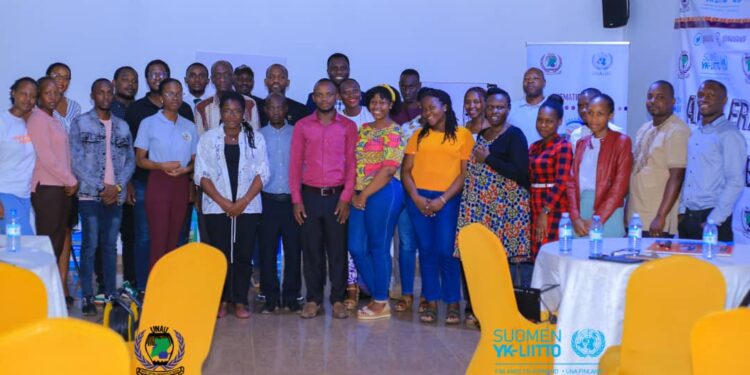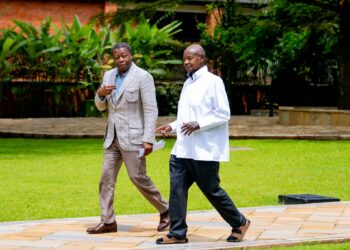The United Nations Association of Uganda (UNAU) is hosting a data and statistics appreciation workshop to accelerate the implementation and achievement of the Sustainable Development Goals by 2030. According to UNAU Secretary General Richard Baguma Tinkasimiire, the organization recognizes that statistics and data are crucial for planning, implementation, and measuring progress. However, they are often overlooked in development work, leading to anecdotal, feelings, and assumptions that fail to achieve goals scientifically.
The UNAU is working with partners from Tanzania, Kenya, Finland, and the World Federation of United Nations Association to promote the importance of data and statistics in planning and investment decisions. By working together with various stakeholders, including civil society, government, academia, and young people, the organization aims to strengthen the ecosystem of collecting, analyzing, and applying data and statistics.
Bright Onapito, a data and artificial intelligence policy officer at the UN Global Pulse, discussed the importance of data for accelerating the SDGs. They agreed that data is a critical resource and helps measure progress. The SDGs have only reached 15% of their target, and at the national level, 64% of indicators in the National Development Plan lack data. This results in only 40% success at the tail end of NDP3 and only 40% success at the national level. Data is essential for solving issues and making progress. To collect data that can be analyzed by gender and age, it is necessary to disaggregate it by gender and age. The national data strategy, an initiative by the government through the Ministry of ICT and National Guidance with support from UN Global Pulse and the United Nations Development Program, aims to maximize the value of data and create a data-driven economy.
Data is an enabler for many problems, such as planning well and delivering services for citizens without adequate data. The data strategy will bring together all stakeholders, including the government, private sector, academia, civil society organizations, and citizens, to see how they use data to solve the challenges faced by the country.
The draft strategy for Uganda’s data strategy is currently being developed, and stakeholders are being asked to provide feedback. The main issue raised is the lack of a culture of data sharing, which is often seen as just giving out everyone’s data. However, this should be done responsibly, as some data is personal and private, and laws around data protection must be followed. Within the law, mechanisms must be in place to share both personal and non-personal data among different stakeholders.
The private sector needs to know how many services they need to get, and data that is required for that needs to be shared. Telecom companies also have data that could help the government fix problems, and some data the telecom companies need from the government. To ensure that there is sharing of this data for mutual good, it is essential to build a culture of data sharing for the socio-economic transformation of Uganda and accelerate the achievement of the Sustainable Development Goals as Uganda and the world.
To support this, Uganda needs to produce and generate data that is not found in normal places. Innovative ways of collecting data, such as satellite imagery, social media mining, and radio mining, can be used to solve critical problems related to the SDGs. Non-digitized data exists in the country, which is stored on paper and in various systems like NIRA. Digitizing this data is important because it makes it easier to analyze and solve problems. The National Data Strategy has been designed to address this challenge by prescribing initiatives to create digital registries, which are systems that collect personal information. This data can be connected to other sources, such as the national registry, URA, and other sources, making it easier to access services. Digitization of data creates efficiency and the need for digitization is crucial.
In conclusion, the Ugandan government is interested in digitizing data to improve efficiency and accelerate the achievement of the Sustainable Development Goals. By creating digital registries and connecting data from various sources, Uganda can create a more efficient and effective data strategy for its citizens.
Do you have a story in your community or an opinion to share with us: Email us at editorial@watchdoguganda.com













